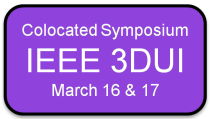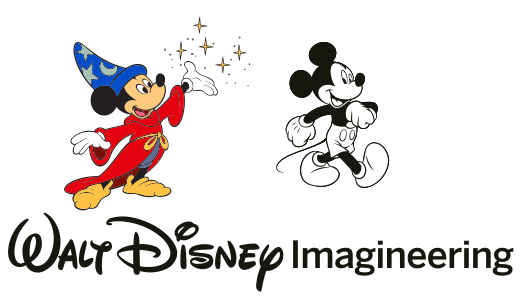- Home
- Program
- Presenter Info
- Call for Participation
- Venue
- Registration
- Committees
- Past Conferences
- IEEE 3DUI 2013
- ACM i3D 2013
[PN-002] The Future of Consumer Virtual Reality
Although virtual reality has existed in research labs and some niche markets for decades, only recently has it started to gain acceptance for the consumer. This trend started with the Nintendo Wii, the Playstation Move, and Microsoft Kinect. More immersive VR—with tracked head-mounted displays, hand tracking, and low-cost and easy-to-do integration—is now beoming available at a low cost. Is this just another passing fad that will move back to the laboratory or is it here to stay? Will consumer virtual reality move beyond gaming to cover a wide range of digital media? Or is consumer VR only appropriate for a small subset of games and consumer applications? This panel of industrial pioneers will debate the tradeoffs of different VR technologies, discuss important aspects of the end-user experience, describe the challenges of bringing VR to the consumer market, predict the future of low-cost VR, and discuss how mass market VR will impact other industries. Topics to be discussed include:
- What are the solveable problems that we should be focusing on and what problems should we accept as unsolveable?
- What are the greatest challenges of making VR work for the masses?
- How is VR for the masses different than VR for research?
- What is the role of consumer VR beyond gaming?
- Why should the research community care about consumer VR?
The panel will begin with speakers providing a short (5 minutes or less) position statement each of what they believe are the most important aspects of consumer VR and what the future holds. Panelists will speak in detail about their area of expertise rather than to provide general thoughts that the other panelists and audience likely already agree on. The moderator will then start a discussion, followed by questions from the audience.
Participants

Jason Jerald (Organizer)
Jason is Founder of NextGen Interactions, a consulting company that focuses on augmented/virtual reality, real-time 3D graphics, and human-computer interaction. He has 15 years of experience developing virtual reality and motion-tracked systems. Jason has co-authored numerous peer-reviewed publications and holds 8 patents. He received a Ph.D. from the University of North Carolina at Chapel Hill with a focus on visual-motion and latency perception, and a B.S. in Computer Science with an emphasis in Computer Graphics from Washington State University.

Palmer Luckey
Palmer is the original founder and designer of the Oculus Rift. Before starting Oculus VR, Palmer worked as an engineer at USC's Institute for Creative Technologies (ICT) in the Mixed Reality lab, where he contributed to research and development of virtual reality systems and head-mounted displays. Palmer is also known for having the world's largest collection of VR headsets and founding the ModRetro Forums.

Amir Rubin
Amir is President and CEO of Sixense Entertainment, a company that focuses on motion tracking technologies for interactive entertainment and other mass markets. He was previously CEO of Interactive Light, a company that focused on sports simulation. Amir has over 20 years of experience with different forms of motion control. Prior to Sixense Entertainment, Amir also previously founded the companies Transparency Software, 2Train4, and Immersia.

Sébastien Kuntz
Sébastien is the founder and president of “i’m in VR”, a company focusing on immersive VR, and offering MiddleVR, a generic VR plugin. He also created the VR Geeks association, which aims at creating cheap VR experiences. Sébastien is a board member of the French VR association AFRV and teaches VR at engineering schools and at game designers schools. Sébastien has more than 10 years of experience in VR. Prior to " i'm in VR", he worked at Virtools / Dassault Systèmes as the lead Virtual Reality engineer and at SNCF (french railways) on a VR Engine and VR Simulators (FIACRE and SIMURAT).

David A. Smith
David A. Smith is Chief Innovation Officer and Senior Fellow at Lockheed Martin GTL where he has developed technologies including extreme wide field of view lenses for AR, the open-source Virtual World Framework, the HoloWall, and won the Lockheed Martin GTL Inventor of the Year twice. David was previously the chief architect of the Croquet Project, an open source virtual world collaboration platform. In 1987, he created The Colony, the first real-time 3D adventure game/shooter and the precursor to today's first-person shooters. In 1989, he created a virtual set and virtual camera system that was used by James Cameron for the movie The Abyss. David also founded or co-founded several companies including Virtus Corporation, Red Storm Entertainment, Timeline Computer Entertainment, Neomar, and Teleplace.

























